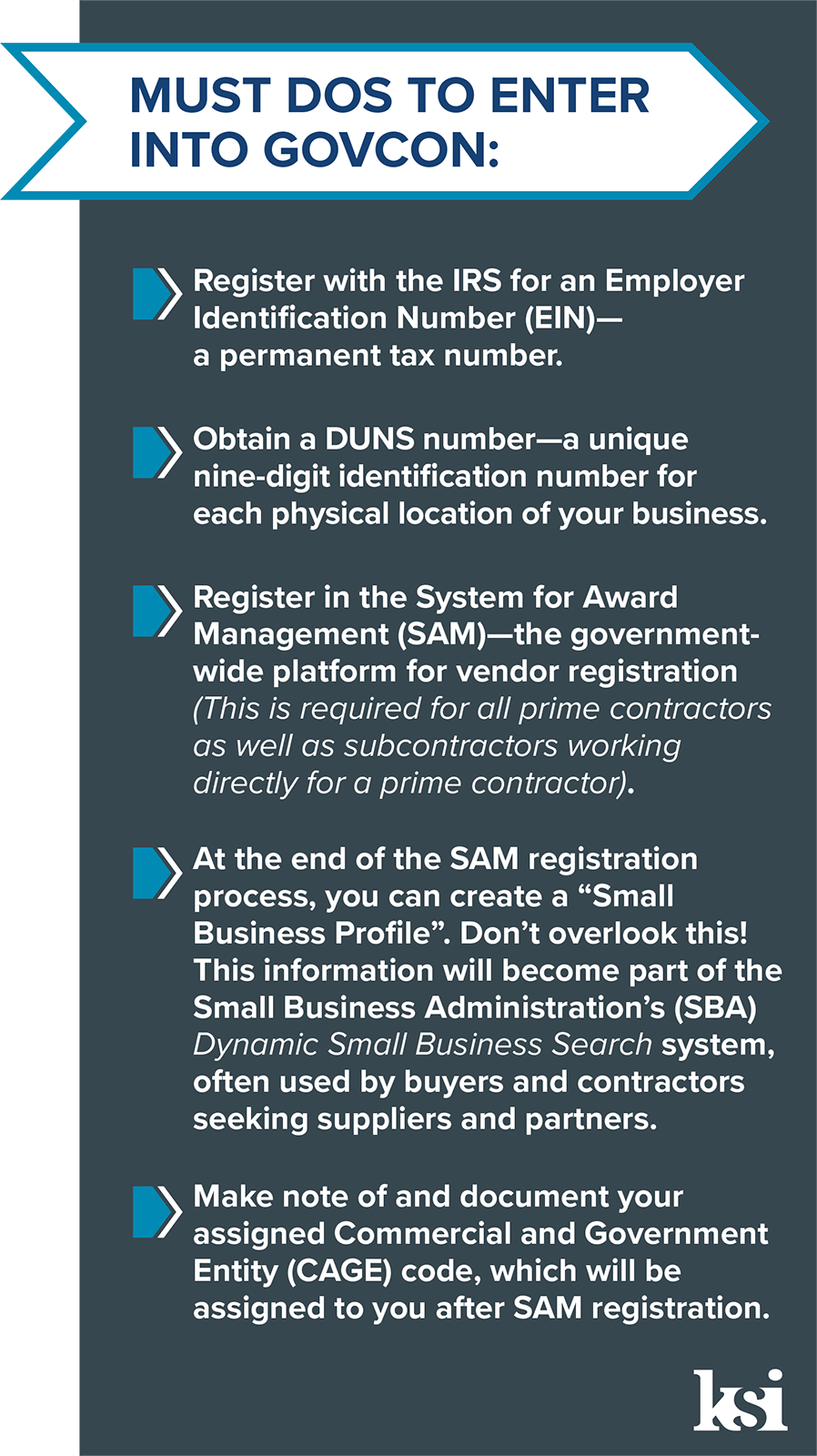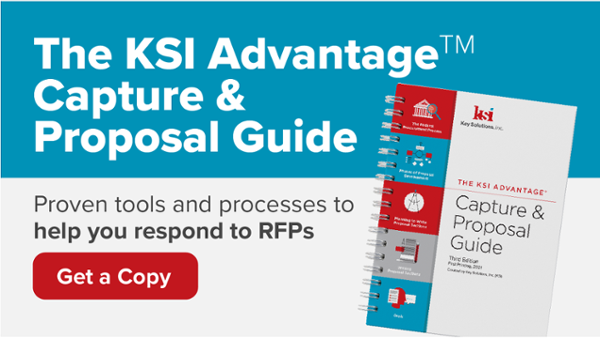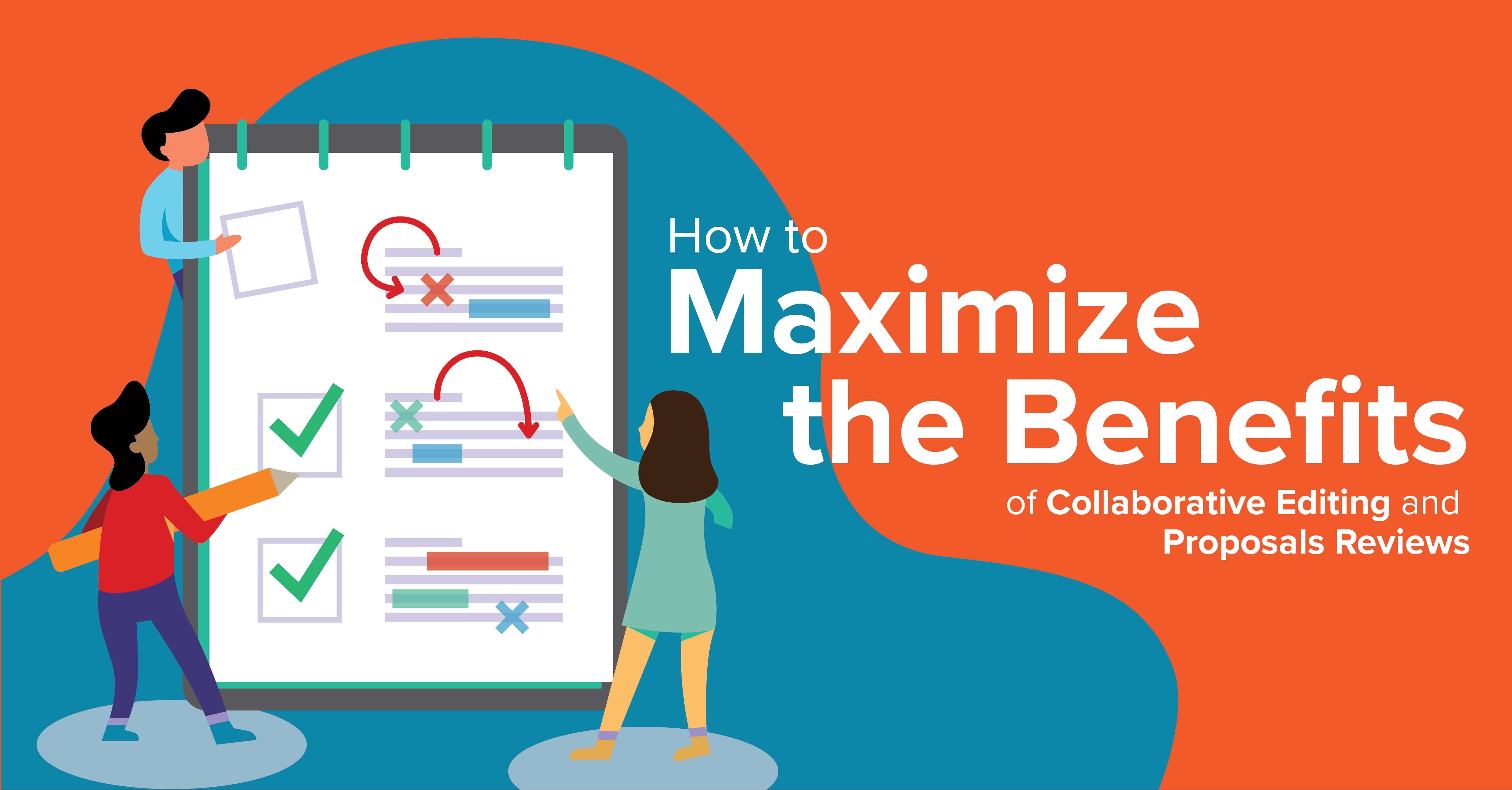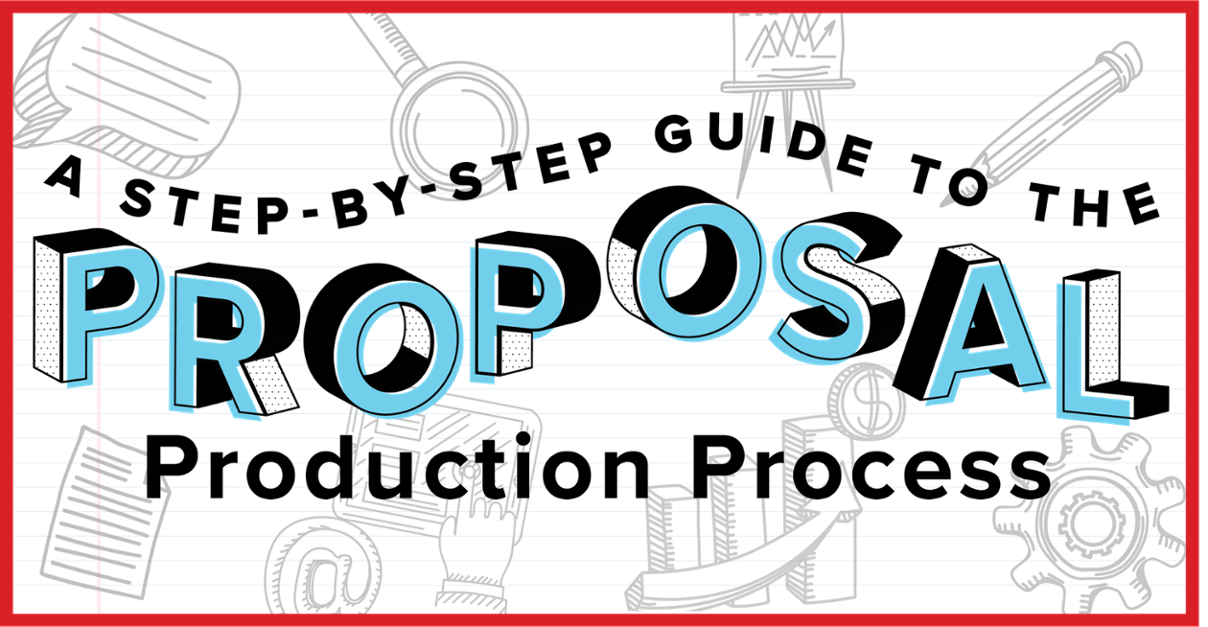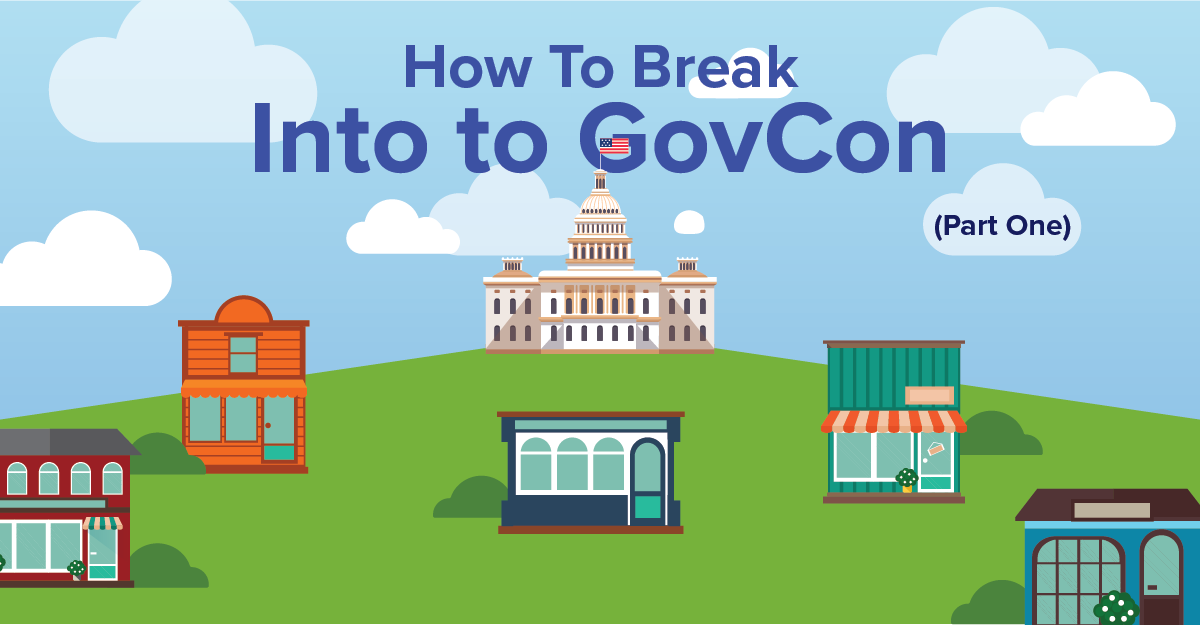
The U.S. federal government is the world’s largest buyer. Every year, it spends billions of dollars on products and services covering thousands of categories ranging from fighter jets and garden supplies to IT services and logistics support.
With that much money being spent on just about every industry imaginable, it might seem like doing business with the government is the easy road to success. This assumption is not often the case, however. Contracting with the government is considerably different than doing business with the commercial sector. The federal marketplace is unique and complicated.
In this article, we go back to the basics—breaking down the complexity of the federal procurement process for those who might be new to government contracting (GovCon). This is an introductory article to a six-part series.
Future posts will highlight the six Cs to successfully break-in, and stay-in, the world of GovCon including:
- Clarify Your Brand
- Confirm Your Prospects
- Connect with Customers
- Conquer Roadblocks
- Capture Opportunities
- Compete to Win
Understanding the Terms
To understand government contracting, you need to know its terminology. Like most industries, government contracting has its own lingo—unique words and phrases specific to that industry. So, before we dive into anything else, let’s define some of the most common terms you will see and hear as you navigate the world of GovCon.
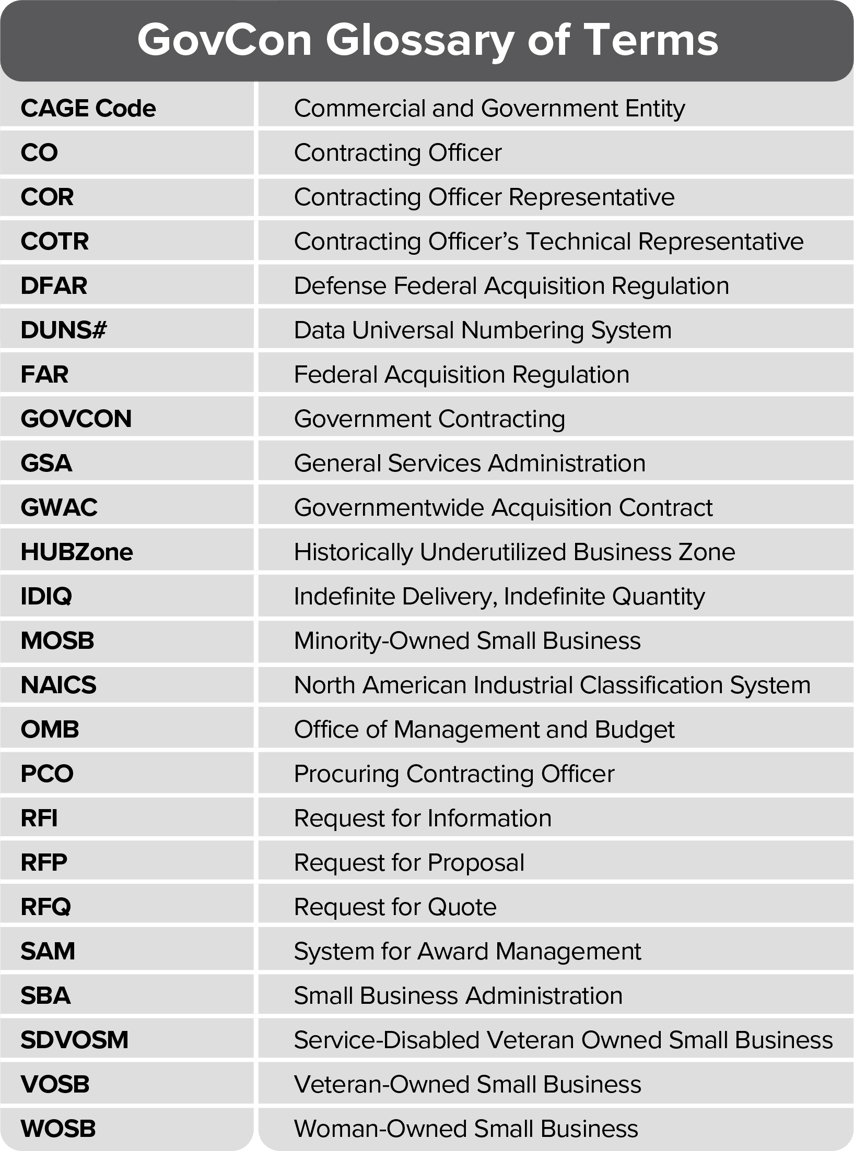
Understanding the Rules
Nearly all government contracting is governed by the Federal Acquisition Regulation (FAR)—the codified rules and regulations for government procurement used by executive agencies in the United States. Each federal agency has its own contracting officers who acquire goods and services, as well as its own modified procurement regulations, but all agencies must follow the core regulations cited in the FAR. Before entering the arena of GovCon, become familiar with the FAR. Once you understand the rules, then you can start laying the groundwork for doing business with the government.
Every small business must also meet some basic requirements before it can compete for government contracts, including registering your business in multiple databases. We've provided additional links and details below for more information in case you have not completed this process.
Links:
GovCon Misconception #1
Many people starting out in federal contracting believe that once they register in SAM and acquire some certifications, the government will somehow know and seek them out to do business. Don’t count on it.
With the government, things rarely happen quickly. In addition, the government is extremely risk averse. They do business with people they know and trust. Anyone who is seeking to rapidly rise to the upper echelons of contracting is in the wrong business. Time, patience, and long-term planning are required.
Understanding the Process
The General Services Administration (GSA) is the acquisition arm of the federal government and is the link that connects federal agencies to the commercial sector for mission-essential products and services. It oversees the large GSA Schedules, which other federal agencies can use to buy what they need. Think of the GSA Schedule like a pre-negotiated contract. Agency procurement managers can make purchases from it knowing that GSA handled the legalities.
GSA Schedules are contracting vehicles—the basic means through which the government buys products and services from industry, as well as the mechanism that enables industry to sell to the government. There are a variety of contract vehicles used in the federal space, however, the most common are GSA Schedule contracts, IDIQ contracts, and GWACs. According to the GSA, the GSA Schedule “is a long-term governmentwide contract with commercial firms providing federal, state, and local government buyers access to more than 11 million commercial supplies (products) and services at volume discount pricing.”
The advantage is that a GSA holder can sell to any government agency through that one source, rather than having separate contracts with each agency. In Fiscal Year 2020, GSA consolidated the 24 legacy schedules into a single schedule of 12 major categories including:
- Office Management
- Facilities
- Furniture and Furnishings
- Human Capital
- Industrial Products and Services
- Information Technology
- Miscellaneous
- Professional Services
- Scientific Management and Solutions
- Security and Protection
- Transportation
- Travel
Federal buyers do not have to use GSA Schedules. In fact, as stated in the book, Government Contracts Made Easier, “Only about 10% of the total federal contract spend is made using GSA Schedules.”
An agency’s Contracting Office sets the rules of engagement for procurement. Within that office, the Contracting Officer (CO) is the buyer who has the authority to determine the acquisition strategy including which contracting vehicle(s) to use. Most government contracts over $250,000 go through a competitive bidding process overseen by the CO. The CO announces the requirement and releases a solicitation or Request for Proposal (RFP). Contracting officers also develop the criteria for solicitations.
The purpose of a solicitation is to provide industry with the information needed to bid on or compete for government work. It consists of the terms, conditions, and provisions that will constitute the resulting contract, and includes the details and requirements that potential offerors must provide to the government for evaluation. Prospective offerors respond to the solicitation by submitting a formal proposal for evaluation with the goal of winning the work.
Conclusion
In summary, government contracting is how federal agencies solicit the public business sector for the goods and services they provide through a process of competitive bidding. A government contractor is a company that provides goods and services for government agencies. Contractors become employed by the government by winning contracts that are out for bid.
Government contracting in the United States accounts for about $7 trillion annually—about 10 to 15 percent of gross domestic product—and can be a highly profitable and reliable revenue stream. But you must understand the market first. Doing business with the federal government is unlike any other client. The complex regulations in the FAR govern the procurement process and specific requirements that must be met before you can begin working in the federal space.
This article provided a high-level overview of what you must do to prepare for government contracting. Subsequent articles will focus on six, key strategies for how to break into GovCon and succeed. The next article will highlight the first strategy—Clarify Your Brand.
Want to learn more about the federal procurement process, its regulations, and the proposal lifecycle? The KSI Advantage© Capture & Proposal Guide has you covered.
ARTICLE SOURCES:
Bradt, Judy. Government Contracts Made Easier. Middletown, DE: Summit Insight, 2019.
Deltek. “Federal Contracting 101: The Basics”. GovWin from Deltek. https://info.deltek.com/SMBTools. (No date).
“Federal Government Contracts and Bids.” FindRFP.com, FindRFP, Inc., Date published in 22 03 2021,
https://www.findrfp.com/Government-Contracting/Federal-Contracts-Bids.aspx.
“What is Competitive Bidding?” FindRFP.com, FindRFP, Inc., Date published in 22 03 2021, https://www.findrfp.com/Government-Contracting/competitive-bidding.aspx.
“What is Government Procurement?” FindRFP.com, FindRFP, Inc., Date published in 22 03 2021,
https://www.findrfp.com/Government-Contracting/Government-procurement.aspx.



